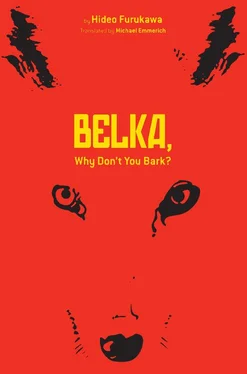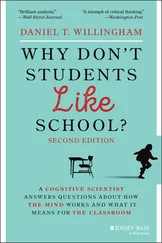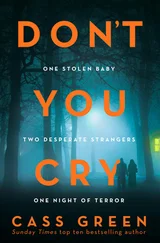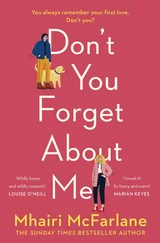Hideo Furukawa - Belka, Why Don't You Bark?
Здесь есть возможность читать онлайн «Hideo Furukawa - Belka, Why Don't You Bark?» весь текст электронной книги совершенно бесплатно (целиком полную версию без сокращений). В некоторых случаях можно слушать аудио, скачать через торрент в формате fb2 и присутствует краткое содержание. Город: San Francisco, Год выпуска: 2012, ISBN: 2012, Издательство: Haikasoru, Жанр: prose_magic, Современная проза, на английском языке. Описание произведения, (предисловие) а так же отзывы посетителей доступны на портале библиотеки ЛибКат.
- Название:Belka, Why Don't You Bark?
- Автор:
- Издательство:Haikasoru
- Жанр:
- Год:2012
- Город:San Francisco
- ISBN:978-1-4215-5089-3
- Рейтинг книги:4 / 5. Голосов: 1
-
Избранное:Добавить в избранное
- Отзывы:
-
Ваша оценка:
- 80
- 1
- 2
- 3
- 4
- 5
Belka, Why Don't You Bark?: краткое содержание, описание и аннотация
Предлагаем к чтению аннотацию, описание, краткое содержание или предисловие (зависит от того, что написал сам автор книги «Belka, Why Don't You Bark?»). Если вы не нашли необходимую информацию о книге — напишите в комментариях, мы постараемся отыскать её.
https://www.youtube.com/watch?v=ay_DcZ6RDFA https://www.youtube.com/watch?v=Orvqrqjk9pU
Belka, Why Don't You Bark? — читать онлайн бесплатно полную книгу (весь текст) целиком
Ниже представлен текст книги, разбитый по страницам. Система сохранения места последней прочитанной страницы, позволяет с удобством читать онлайн бесплатно книгу «Belka, Why Don't You Bark?», без необходимости каждый раз заново искать на чём Вы остановились. Поставьте закладку, и сможете в любой момент перейти на страницу, на которой закончили чтение.
Интервал:
Закладка:
The wind sighed pointlessly over the desolate valley.
Apart from that, it was quiet.
And then you growled.
You, Guitar. The Mexican lay at your feet, two cartridge belts slung across his chest, dressed in the manner of the Muslims of this particular region. He was your master. He was dead. Your master, your alter ego, your second self, the Hellhound. He was dead.
You were alive.
The single survivor on the mujahideen side.
You were surrounded.
By countless dogs. Military dogs belonging to “S.” Four strategic divisions, subset of “S,” were operating together that day, in that place. Each one was composed of four humans and twelve dogs. So there were, in fact, forty-eight dogs in all. That was the exact number, though you couldn’t count them. There should have been sixteen people, but in fact there were only thirteen. The other three were bodies. Corpses. You had killed them.
You had taken them down, trying to protect your master.
You, a mongrel. You had watched your mother, Goodnight, and then… all on your own, you had learned, turned yourself into a military dog. You had guarded him as best you could.
But your master died.
Your second self died.
You were surrounded. Because you were the only survivor. The humans were standing on the outskirts of the circle, and all you could see were dogs.
You didn’t bark.
You growled.
The dogs watched you.
Then suddenly one barked. Woof!
Another barked. Woof!
And another. Woof!
Woof!
Woof!
Woof!
You stopped growling, though you didn’t realize it. You were overwhelmed. Swept up in the phenomenon that had suddenly blossomed around you. For a moment you felt as if you were listening to a chorus. You were enclosed, and the enclosure was singing. Not loudly—the melody was, if anything, tranquility itself. So it seemed to you. Unable to look your enemy in the eye, because the enemy was all around you, three hundred sixty degrees, you lowered your gaze, stared down at your feet. That, you felt, was all you could do. The Hellhound was dead. Yeah, I’m dead, he was saying to you. YOU… YOU’RE DEAD? YOU’RE MY ALTER EGO, AND YOU’RE DEAD? And you listened to the song. All around you, three hundred sixty degrees of singing.
Woof!
Woof!
Woof!
Woof!
Woof!
You raised your eyes again.
You didn’t growl. You barked. Woof!
Forty-eight dogs fell silent. Then one stepped toward you. A male. A fairly large dog. His stride was dignified, leisurely.
He stood in front of you.
This is it, Guitar. This is the moment. This is the place where your destiny changes course again, one last time. Your alter ego was gone, and now only one being in the entire world had the right to flip the switch, to turn your destiny from one track to the other, and that was you. You. Two had become one. You felt a bolt of spiritual lightning slam through your body. You felt a sign. But that sign wouldn’t turn you into a devout Christian or a devout Muslim. You… you would be a dog. That was all. The dog standing in front of you spoke to you, first with his eyes, and then by speaking to you.
ARE YOU A MONGREL? he asked. A DOG WHO MONGRELIZES?
I’M ME, you answered. I’M ONE.
YOU WANT TO LIVE?
TO LIVE… YES, I’LL LIVE! I’LL NEVER DIE!
COME, THEN.
AM I A PRISONER?
NO.
NO?
YOU’VE COME.
I HAVE?
YOU CAME TO US. SO WE CAME TO GET YOU.
You shuddered when you heard those words, and then you pressed the switch. You would make the great change.
The dogs spoke among themselves in dog language; the humans spoke Russian. A man in camouflage with no epaulettes was making a report over the radio. He was asking for a truck to come get them, and soon a six-wheel-drive vehicle arrived on the scene. The scene changed: now there were forty-eight dogs plus one, ninety-one bodies, thirteen people, and a six-wheel truck—an “S” rapid-deployment vehicle—carrying heavy machine guns and mortars. An officer dressed in an ordinary army uniform hopped out. The wind was still whipping wildly over the valley. The man who had spoken Russian over the radio had conveyed the dogs’ wishes, not his own, and the officer who had come was neither a company nor a battalion commander; he was a general. He was the man known as the Director.
The thirteen living men saluted the general crisply with one motion.
As he approached, the circle of dogs, the enclosure, broke.
“You’ve accepted him?” the general asked.
Two dogs stood before the general within the ring of “S” dogs: the mujahideen survivor and the male dog who had taken up a position opposite him. The general had addressed the latter. His gaze, however, was fixed on the survivor.
Woof! said the male dog.
“All right, then, Belka,” said the general. “He looks a bit rough around the edges, but you think it’d be a waste to kill him, huh? He’s got what it takes, I guess… he was born with it. Or maybe he’s got some amazing story too? I bet he does. You, boy, here in Afghanistan, serving the mujahideen.” The general was addressing the new dog now. “I believe it. Belka accepted you. You were chosen. Your blood is good enough, you can join the line. You are accepted. Come.”
That’s what happened on the battlefields of Afghanistan in the second week of December 1983.
An epoch-making event in dog history.
Woof, woof, woof, woof!
The Afghan War continued, but “S” pulled out. For the time being, that is. Because General Secretary Chernenko had stripped it of much of its authority, steered clear of it. Then, in March 1985, General Secretary Chernenko himself pulled out—of Soviet politics, of the world. And the fifty-four-year-old Mikhail Gorbachev was chosen as the next general secretary. Gorbachev was much, much younger than his predecessor, Chernenko, and than Chernenko’s predecessor Andropov, and than Andropov’s predecessor Brezhnev. Party personnel at other levels began changing too, as one generation gave way to the next.
General Secretary Gorbachev insisted that reform was necessary.
Under General Secretary Gorbachev, the Communist Party leadership announced one new policy after the next.
He made perestroika his slogan. “Restructuring.”
The Afghan War continued. It wasn’t over yet. Of course not. It was a ten-year quagmire, after all.
In July 1986, Gorbachev declared in a speech that he “would equate the word perestroika with revolution.” He stated explicitly that he was aiming to reform the USSR fundamentally. But how could this be? Hadn’t the Soviet leadership always regarded as absolutes the bourgeois revolution of February 1917 and the socialist revolution in October the same year? So there were those who voiced their doubts. And there were others who had doubts but kept them to themselves, became confused. And there were those who declared, smiles playing on their faces, that only the revolutions of 1917 could ever have real meaning for the homeland.
Those, for instance, who belonged to “S.” The humans, of course, not the dogs.
The general of “S,” the Director, had pounded this into their heads.
The Director himself had taught them how to fight without weapons, how to kill without a sound, how to survive. And he had filled their minds with rigid, unyielding ideas. We will not allow the counter-revolutionaries to take control; we must defend the achievements of socialism at home and abroad; Marxism-Leninism alone is strong, legitimate. If you can’t be a true believer, you might as well be a priest. Indeed, when new members were inducted into “S” they were required to sign a document pledging their loyalty to the unit—any member who betrayed the unit would be killed. So even if they had wanted to, it would have been impossible for anyone to start having doubts about their ideology—to abandon their faith in the Revolution—and go back to the Russian Orthodox Church. If you changed your mind, if you had a change of heart, you would be executed. It was as simple as that. Though in actual practice, this was never a problem. Once a man entered “S,” no one from the general on down ever had the slightest doubt about the legitimacy of his work. The men were fervent in their belief. The unit’s insignia proved their legitimacy.
Читать дальшеИнтервал:
Закладка:
Похожие книги на «Belka, Why Don't You Bark?»
Представляем Вашему вниманию похожие книги на «Belka, Why Don't You Bark?» списком для выбора. Мы отобрали схожую по названию и смыслу литературу в надежде предоставить читателям больше вариантов отыскать новые, интересные, ещё непрочитанные произведения.
Обсуждение, отзывы о книге «Belka, Why Don't You Bark?» и просто собственные мнения читателей. Оставьте ваши комментарии, напишите, что Вы думаете о произведении, его смысле или главных героях. Укажите что конкретно понравилось, а что нет, и почему Вы так считаете.












